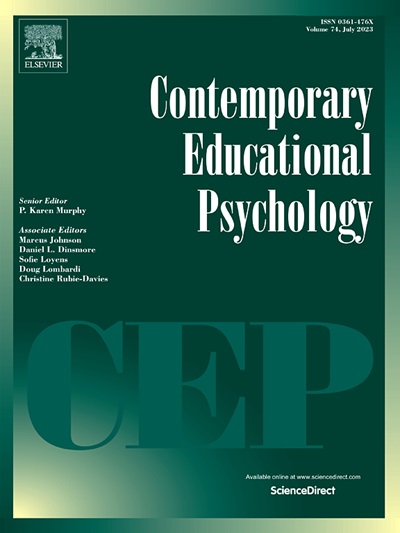How much formalization of assessment methods is useful when implementing formative assessment in second grade mathematics classrooms?
IF 3.8
1区 心理学
Q1 PSYCHOLOGY, EDUCATIONAL
引用次数: 0
Abstract
Student achievement has been found to benefit from formative assessment (FA), but only few studies have directly compared different FA approaches. In the present study, two differently structured FA approaches were compared: While teachers in the first experimental group (curriculum-embedded assessment (CE), 19 classes, N = 431students) used written task sets for assessment, teachers in the second experimental group (planned-for-interaction assessment (PI), 22 classes, N = 492 students) were trained in conducting focused conversations for assessment with their students throughout the school year. Results suggest a slight advantage of CE in terms of math achievement, whereas PI was associated with significantly higher scores on the variable need for cognition. Students’ academic self-concept did not differ between groups, and results were not affected by students’ achievement level or teacher characteristics. Consequently, it seems promising to combine the highly structured CE approach with the more flexible PI approach.
在二年级数学课堂实施形成性评估时,评估方法的形式化有多大作用?
学生的成绩已被发现受益于形成性评估(FA),但只有少数研究直接比较不同的FA方法。在本研究中,比较了两种不同结构的FA方法:第一个实验组(课程嵌入评估(CE), 19个班级,N = 431名学生)的教师使用书面任务集进行评估,第二个实验组(计划互动评估(PI), 22个班级,N = 492名学生)的教师在整个学年中都接受了与学生进行重点对话评估的培训。结果表明,CE在数学成绩方面有轻微的优势,而PI在认知需求这一变量上的得分明显更高。学生的学业自我概念在组间无显著差异,成绩水平和教师特征不影响结果。因此,将高度结构化的CE方法与更灵活的PI方法结合起来似乎很有希望。
本文章由计算机程序翻译,如有差异,请以英文原文为准。
求助全文
约1分钟内获得全文
求助全文
来源期刊

Contemporary Educational Psychology
PSYCHOLOGY, EDUCATIONAL-
CiteScore
16.50
自引率
3.90%
发文量
74
期刊介绍:
Contemporary Educational Psychology is a scholarly journal that publishes empirical research from various parts of the world. The research aims to substantially advance, extend, or re-envision the ongoing discourse in educational psychology research and practice. To be considered for publication, manuscripts must be well-grounded in a comprehensive theoretical and empirical framework. This framework should raise critical and timely questions that educational psychology currently faces. Additionally, the questions asked should be closely related to the chosen methodological approach, and the authors should provide actionable implications for education research and practice. The journal seeks to publish manuscripts that offer cutting-edge theoretical and methodological perspectives on critical and timely education questions.
The journal is abstracted and indexed in various databases, including Contents Pages in Education, Australian Educational Index, Current Contents, EBSCOhost, Education Index, ERA, PsycINFO, Sociology of Education Abstracts, PubMed/Medline, BIOSIS Previews, and others.
 求助内容:
求助内容: 应助结果提醒方式:
应助结果提醒方式:


